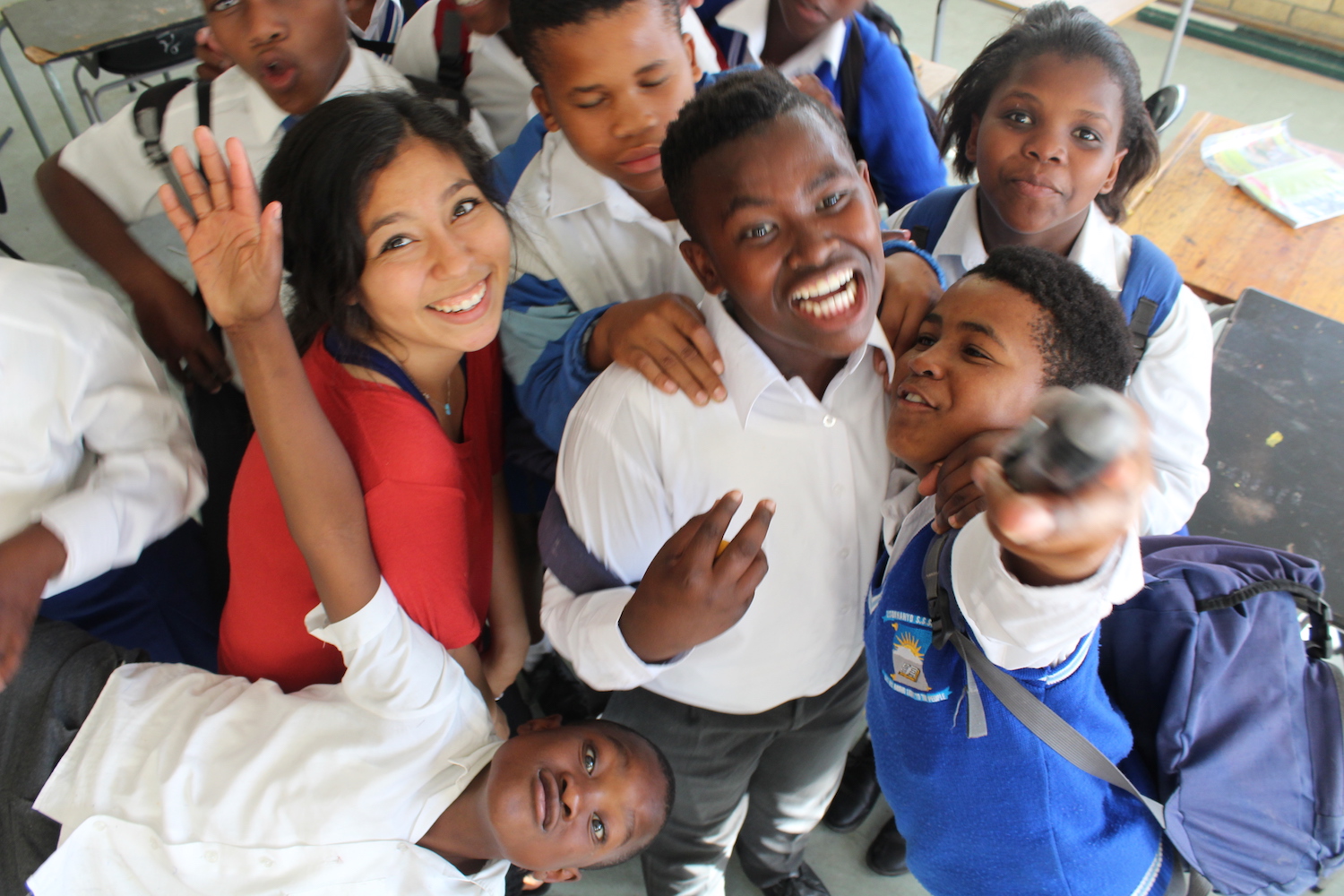For Jessica Gonzalez, learning a second language was not a choice. She was raised by parents who immigrated to the United States from Mexico, who only spoke Spanish at home– and the same was true throughout her surroundings. Living thirty minutes north of the border between Texas and Mexico, nearly everyone in Jessica’s community was a native Spanish speaker. In school, however, classes were taught in English, which is how Jessica became fluent in both. Her success in school, along with the mentorship of her third-grade teacher, was what inspired Jessica to attend college– the first in her family to do so. Her story is similar to that of many children of immigrant families; what sets Jessica apart is how her passion for both languages has also compelled her to act for positive change in her communities.
It was not the experience of a traditional language class which allowed Jessica to utilize her language skills best– instead, it was the service learning experiences she had while at MSU. In one class, her experience as a minority student speaking a second language allowed her to connect with elementary students in East Lansing. The goal of the project was to help the students talk about their life experiences, as they were working to publish a book with their stories. What helped Jessica in particular connect with the students was the fact that the majority of the class were minority students, especially Latino students who were bilingual to some extent. While helping them write about their own lives was the immediate goal, it was her shared experience as a minority student herself, and the fact that she shared some of their unique linguistic and cultural experiences, which helped her really connect with the children.

The most influential learning experience for Jessica was her semester spent completing an internship abroad in South Africa, teaching English Language Arts to middle and high school students. Her students didn’t grow up speaking English– most spoke Xhosa or Zulu as their first language. Her personal experience learning English in school helped her teach these students, and connect with them despite the fact that they spoke a different language. The first thing she established with her students was that it was okay to make mistakes as they worked to learn a new language– by telling them that English was also not her first language, she assured them that she would not judge them, but encourage them even when they were struggling.
When talking about how she interacted with the children, she adds, “It was also me telling them to understand that their first language is as valuable as English.” This conviction came from a trend she observed among many of her family and friends growing up: many of them felt somehow inferior for being Spanish speakers in a majority English-speaking country. In school, Jessica remembers, they were taught that only English should be spoken– this combined with other little messages, created the impression on her that Spanish was wrong, and only English was acceptable and good. It is because of messages like these that, while she appreciates and uses both languages, Jessica especially appreciates her ability to communicate with those who speak Spanish, in their own language.

Jessica’s dream is to move back to her home in the Valley, ultimately working to reform educational policy in the local school districts. In the meantime, she’s finishing her time studying public policy at MSU, and plans to continue teaching language arts after graduation, continuing to use her bilingual experience to empower others to be proud of their heritage and language. Her ability to connect with non-native English speakers in this way extends beyond those who spoke Spanish as a first language. She connects with fellow language learners of any background, as she has found that the shared struggles and triumphs of learning a new language create a community which extends beyond geographic and cultural lines. It is this community of passionate learners like Jessica who can remind us that every language– and speaker– is valuable.
– Story by Katherine Stark

